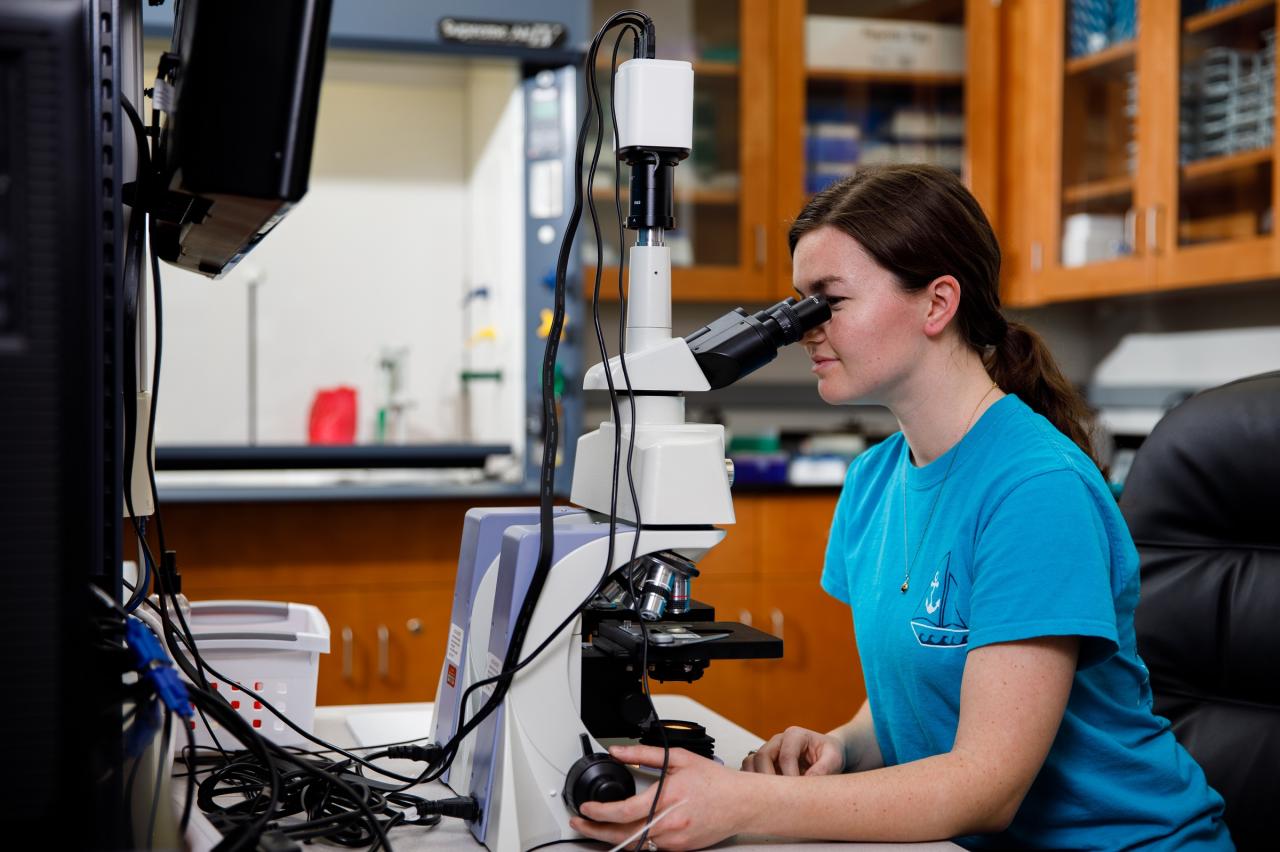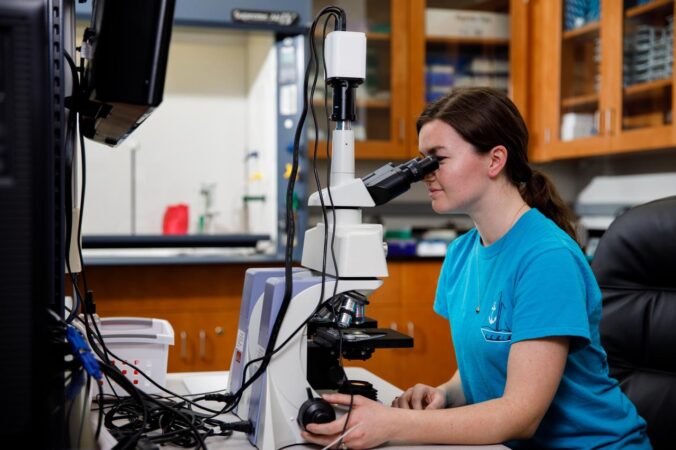
Overview of Bachelor’s in Health Science

A Bachelor’s in Health Science is a foundational undergraduate program that provides a comprehensive understanding of health-related disciplines. Its purpose is to equip students with the knowledge and skills necessary to work in various healthcare settings and pursue further education in health-related fields.
The coursework in a Bachelor’s in Health Science program typically includes core courses in biology, chemistry, anatomy, physiology, and public health. Students also study courses in health policy, healthcare administration, and research methods. The curriculum is designed to provide students with a solid foundation in the scientific principles underlying health and disease, as well as the practical skills needed to work in healthcare settings.
Graduates with a Bachelor’s in Health Science have a wide range of career opportunities. They can work as health educators, health policy analysts, healthcare administrators, or research assistants. They can also pursue further education in fields such as medicine, nursing, or public health.
Core Concepts and Theories in Health Science
Health Science encompasses a vast array of fundamental concepts and theories that guide its practices and research. These principles underpin the understanding of human health, disease, and healthcare delivery.
At the core of Health Science lies the concept of holism, which emphasizes the interconnectedness of physical, mental, and social factors in determining health outcomes. This perspective recognizes the complexity of human health and the need for a comprehensive approach to healthcare.
Principles of Health Promotion and Disease Prevention
Health promotion and disease prevention are central pillars of Health Science. Health promotion focuses on empowering individuals and communities to adopt healthy behaviors and lifestyles that reduce the risk of disease and promote overall well-being. Disease prevention aims to identify and intervene in factors that contribute to the development and spread of diseases.
- Education and awareness campaigns play a crucial role in health promotion, providing individuals with knowledge and skills to make informed choices about their health.
- Public health policies, such as tobacco control and vaccination programs, can significantly impact population health outcomes.
- Environmental interventions, like air quality regulations and water treatment, aim to reduce exposure to health hazards.
Principles of Healthcare Delivery
Healthcare delivery involves the provision of medical care and services to individuals and communities. Health Science principles guide the design and implementation of healthcare systems to ensure equitable access, quality care, and cost-effectiveness.
- Patient-centered care emphasizes the importance of involving patients in their own healthcare decisions.
- Evidence-based practice relies on scientific research to inform clinical decisions and improve patient outcomes.
- Interdisciplinary collaboration among healthcare professionals ensures comprehensive and coordinated care.
Research Methods and Data Analysis in Health Science
Health Science research employs a range of methodologies to investigate health-related issues and develop evidence-based practices. Quantitative methods, such as surveys and clinical trials, provide numerical data that can be analyzed statistically.
- Qualitative methods, like interviews and focus groups, yield insights into subjective experiences and perceptions.
- Data analysis techniques, such as regression analysis and machine learning, help researchers identify patterns, draw inferences, and make predictions.
- Health Science research often involves collaboration between scientists, healthcare professionals, and community members to ensure relevance and impact.
Specializations and Concentrations within Health Science
Bachelor’s in Health Science programs offer various specializations and concentrations that allow students to tailor their education to their specific interests and career goals. These specializations provide in-depth knowledge and skills in particular areas of health science, preparing graduates for specialized roles in the healthcare industry.
The coursework and skills required for each specialization vary depending on the focus area. Some common specializations include:
Health Education and Promotion
This specialization focuses on developing and implementing programs that promote health and prevent disease. Students learn about health behavior theories, program planning and evaluation, and community outreach. Career opportunities include health educator, community health worker, and wellness coordinator.
Health Informatics
This specialization prepares students to use technology to improve healthcare delivery. They learn about health information systems, data analysis, and medical informatics. Career opportunities include health information technician, data analyst, and health informatics specialist.
Health Policy and Management
This specialization provides students with a foundation in health policy, healthcare management, and healthcare economics. They learn about healthcare systems, policy analysis, and healthcare finance. Career opportunities include health policy analyst, healthcare manager, and healthcare consultant.
Environmental Health
This specialization focuses on the impact of the environment on human health. Students learn about environmental health hazards, risk assessment, and environmental regulations. Career opportunities include environmental health scientist, environmental health inspector, and environmental consultant.
Public Health
This specialization prepares students to address health issues at the population level. They learn about epidemiology, biostatistics, and social determinants of health. Career opportunities include public health scientist, epidemiologist, and public health program manager.
Skills and Competencies Developed through a Health Science Degree
A Bachelor’s in Health Science program equips students with a comprehensive set of skills and competencies that are essential for success in various healthcare settings. These skills include technical knowledge, critical thinking, problem-solving, communication, and interpersonal abilities.
Health science graduates develop a strong foundation in the scientific principles underlying health and disease, as well as an understanding of the healthcare system and its delivery models. They acquire proficiency in laboratory techniques, data analysis, and research methods, enabling them to contribute to the advancement of healthcare knowledge and practice.
Critical Thinking and Problem-Solving
Critical thinking and problem-solving are crucial skills in Health Science. Graduates learn to analyze complex health issues, evaluate evidence, and develop innovative solutions. They can identify and address healthcare disparities, develop evidence-based interventions, and contribute to the development of policies that improve health outcomes.
Communication and Interpersonal Skills
Effective communication is essential in healthcare. Health Science graduates develop strong written, verbal, and interpersonal skills. They can clearly convey complex medical information to patients, families, and healthcare professionals. They also demonstrate empathy, cultural sensitivity, and the ability to work effectively in interdisciplinary teams.
Practical Applications of Health Science Knowledge
Health Science graduates play a pivotal role in improving patient outcomes and promoting public health. Their knowledge and skills are applied in various healthcare settings, including hospitals, clinics, and community health centers.
Case Study: Improving Patient Outcomes
In a hospital setting, a Health Science graduate working as a patient care coordinator developed a personalized care plan for a patient with chronic heart failure. The plan included monitoring vital signs, administering medications, and providing education on lifestyle modifications. By closely monitoring the patient’s progress, the care coordinator identified early warning signs of a potential heart attack, allowing for prompt intervention and improved patient outcomes.
Role in Public Health
Health Science graduates also contribute to public health initiatives. They conduct research on health disparities, develop educational programs for underserved communities, and advocate for health policy changes. For example, a Health Science graduate working for a non-profit organization developed a smoking cessation program targeting low-income neighborhoods. The program provided free nicotine replacement therapy and counseling, resulting in a significant reduction in smoking rates and improved overall health outcomes in the community.





